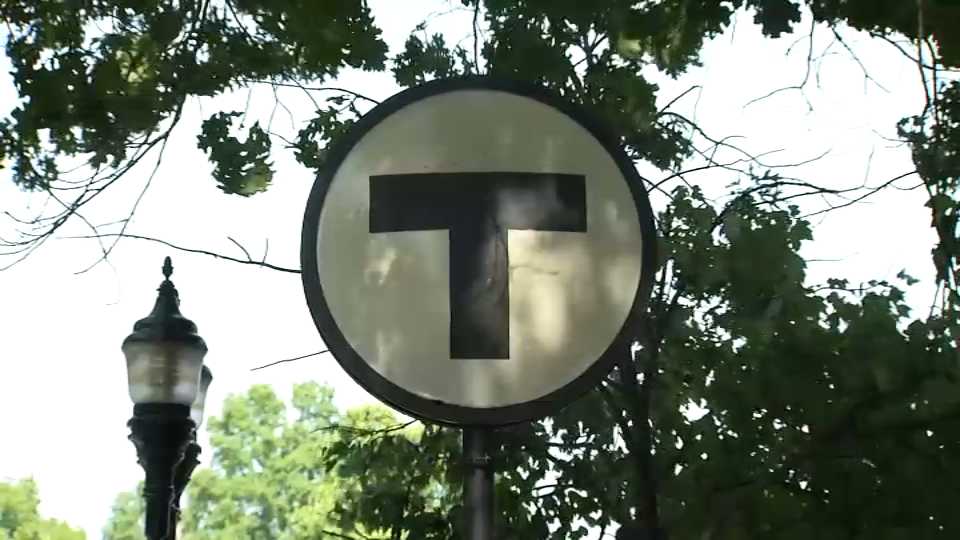
The House budget chief wants to direct $1 billion in surplus income surtax funds towards transportation investments, mainly MBTA capital investments, he told business leaders at an event in Boston.
"We have nearly a billion dollars in surplus funds," House Ways and Means Chair Aaron Michlewitz said during an Associated Industries of Massachusetts event at Northeastern University. "A majority of the funds have been used towards educational programs like universal schools meals, free community college and supporting early child care programs, as worthy as those all are -- we love those -- these funds were designed to be split evenly with education and transportation needs."
WATCH ANYTIME FOR FREE
>Stream NBC10 Boston news for free, 24/7, wherever you are. |
The surplus developed as state budget officials used conservative revenue assumptions in the early days of the existence of the new tax. The 4% surtax on those who earn over a million dollars in a single year was approved by voters in 2022, and lawmakers have capped how much they've spent from that new pot of money in the two years since.
The surplus will equal about $1.09 billion after the collections from fiscal 2023 and 2024, plus $193 million that was redirected to a surtax reserve fund, according to a House Ways and Means spokesperson.
Get updates on what's happening in Boston to your inbox. Sign up for our >News Headlines newsletter.
Michlewitz told reporters after the event that he is "probably" proposing using it all, excepting the surtax reserve fund, to finance transportation improvements in the next budget cycle.
"I'm thinking that we'll probably have to use all of it," he said, "but exactly what the exact number is, yet, I don't know how we're going to chop that up. And that's a conversation for probably early next session."
He added: "Since the majority of the funds from the fair share has been spent on education, it's only right that the majority of the surplus funds available to us now go to supporting transportation, particularly capital investments, the MBTA and other public transit needs."
Michlewitz said he was specifically interested in using the money to help the struggling MBTA with its financial woes.
The House budget chief pointed out to the audience that transportation is one of the business community's main priorities -- and later paraphrased former Boston Celtics coach Rick Pitino to weigh in on the business community's complaints around the surtax and other Beacon Hill policies.
In prepared remarks, he chided businesses for their "negativity" and "complaints."
"Massachusetts still has a dynamic economy and offers its residents a high quality of life ... But judging from the attitude in our community lately, you wouldn't necessarily know that. To quote a much maligned former coach of the Celtics -- we have to throw the Celtics in there -- 'The attitude in this town stinks.' He used a different word," he said.
Michlewitz continued, "The negativity I hear on a daily basis is enough to make you think we are bordering on the Great Depression, or that we're almost wishing it into existence."
In fiscal year 2026 T budget-writers expect to face a roughly $700 million budget shortfall. Without additional assistance or major cuts, the MBTA could run out of cash in the first quarter of fiscal 2026, the latest agency-produced forecast suggests.
Michlewitz grew up in and represents the North End of Boston, which is at the center of the Boston-centric MBTA system. Many of his constituents rely on the public transit system to get around, as do many in the greater Boston area.
Outside of the region, however, Bay Staters often point to other transportation needs like road, bridge and other infrastructure repairs.
Asked by a reporter after the event about balancing the T's need for funding with other transportation needs around the state, especially in areas not serviced by the MBTA, Michlewitz said the T has been turning a corner in terms of service reliability under new leadership and needs funding to continue its improvement.
"We have a general manager that we trust, we think is doing the right thing, is on the right track, really is taking care of some of the challenges that we've been facing with the MBTA," he said.
Healey appointed General Manager Phil Eng a year and a half ago, after a decade of constantly shifting leadership at the T as infrastructure conditions worsened, service slowed, and safety challenges escalated to the point of needing federal intervention.
Since Eng started, the T has implemented systematic shutdowns of each subway line to make track repairs where it was unsafe for trains to move at normal speeds — and are expected to completely eliminate the slow zones by the end of 2024. Trip frequency on the core subway has climbed, and in some cases is running at its highest level since 2016.
"We really have someone who's actually really managing it in a much more productive way, so now's the time to press a little bit from a financial standpoint. So certainly that'll be one of the pieces of the conversation," Michlewitz said. "But there'll be other discussions, RTAs, you know, regional transportation conversations outside of the MBTA discussion."
Michlewitz said "a lot" of members of the House care about T funding.
"We just did a record amount for the FY25 budget going to the MBTA, so I don't, I mean while I'm sure other people have ideas, this is certainly one that a lot of members on the House side care about and would like to do," he said.
Both Michlewitz and House Speaker Ron Mariano of Quincy, who lead the House, serve constituents serviced by the MBTA. On the other side of the third floor, however, the Senate's leadership is from farther outside the Boston area.
Senate Ways and Means Chairman Michael Rodrigues is from Westport, on the South Coast, and Senate President Karen Spilka is from Ashland, located in the metro west area. That branch led the expansion of free regional transit authorities in this past budget cycle.
A spokesman for Senate Ways and Means did not return a request for a response to Michlewitz's comments on Wednesday.
In 2023, the first year budget writers had surtax revenue to bake into the state's spending, House leaders proposed splitting the pot 50/50 into education and transportation investments. The budget Gov. Maura Healey signed that summer divided the money $524 million for education and $477 million for transportation.
The following year, the House didn't propose an exactly even split, though their recommendation had more dollars for transportation than Healey's or the Senate's did.
The House fiscal year 2025 budget carved up $1.3 billion of surtax revenue into a 53/47 education-to-transportation spending split, compared to the Senate's 57/43 recommendation. The final budget ended up steering 58.5% of the surtax spending towards education and 41.5% toward transportation spending.
"The voters, they voted for it with the idea that it would be split 50/50," Michlewitz said Wednesday. "I would credit the House with the numbers we put out, which were close to 50/50, but the end product has been a little bit beyond that scope."
Of the transportation surtax funding, hundreds of millions have gone each year towards direct assistance to the MBTA.
Michlewitz made the announcement to business leaders, pointing out that transportation investments are often a priority of the business community "to make it easier for workers to commute and for goods to move across the state."
Though he offered a recommendation of a large investment in one of their priorities, Michlewitz noted that it would be funded through a 4% surtax on high-earners that some business leaders say makes the state less competitive.
He asked business leaders to work collaboratively with the government, instead of just objecting to policies. The budget chief pointed to the recent showdown between Boston businesses and Boston Mayor Michelle Wu on a property tax shift, which would have temporarily placed a greater tax burden onto commercial properties.
Businesses had been fighting the proposal until a Wednesday morning compromise surfaced, and the Wu plan -- which Michlewitz backed, with some revisions to make it more amenable to commercial property owners -- has been faltering in the State House for months.
"It's time for the business community to move beyond complaints and become active participants in crafting solutions," he said.
Later while talking to reporters Michlewitz said he felt the shift in the business community after voters passed the surtax ballot question.
"I think this is something I've been hearing for the last year or two, to be honest, since the fair share amendment passed. That's something that's been something that's been consistent from the business community. I feel that we need to get over that and start working together to create solutions that will help us move forward and not just be complaining about a ballot initiative that passed in 2022."




